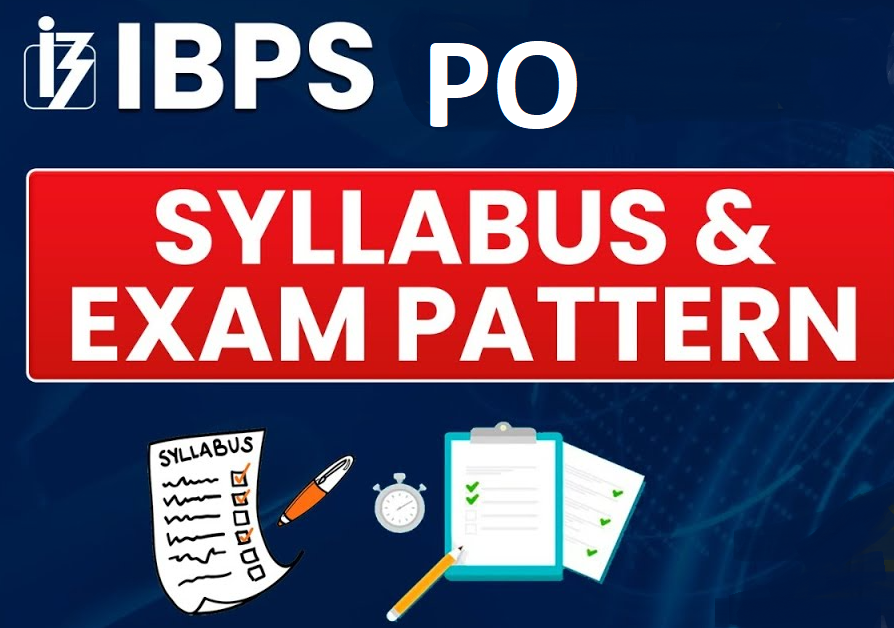Banking aspirants across the country eagerly await the opportunity to prove their mettle in the Institute of Banking Personnel Selection Probationary Officers (IBPS PO) exam. The key to unlocking success in this highly competitive exam lies in a deep understanding and meticulous preparation of the IBPS PO syllabus.
Delving into the Examination Structure
First and foremost, comprehending the structure of the exam is imperative. The examination is generally divided into three phases: Preliminary, Mains, and Interview. The preliminary phase is the first hurdle and consists mainly of Quantitative Aptitude, Reasoning Ability, and English Language. The Mains exam delves deeper, and in addition to the preliminary subjects, includes General Awareness, Computer Knowledge, and a Descriptive Test. The final phase is an interview that assesses a candidate’s personality and banking knowledge. Understanding this hierarchical structure allows candidates to allocate time efficiently for each phase and construct a well-rounded study plan.
Quantitative Aptitude: Number Crunching to Success
A significant portion of the assessment relates to Quantitative Aptitude. This section tests the numerical ability and mathematical prowess of the candidates. It’s not just about the numbers; it evaluates your ability to analyze data and make decisions. As part of the IBPS PO syllabus, candidates must focus on topics such as Simplification, Percentage, Average, Ratio and Proportion, Data Interpretation, and Profit & Loss. Solving puzzles and mock tests will help hone these skills. Understanding the underlying concepts and practicing a diverse set of problems is critical to mastering this segment. Furthermore, learning shortcuts and time-saving tricks can be a game-changer. It’s advisable to allocate a consistent number of hours daily to this section, gradually increasing the difficulty level of the practice material.
Reasoning Ability: Sharpening the Analytical Mind
Reasoning Ability is another area that deserves a focused approach. This section aims to evaluate a candidate’s capacity to think logically and solve complex problems. Topics under this segment include Logical Reasoning, Alphanumeric Series, Ranking, Direction, and Alphabet Tests. Puzzle-solving and logical thinking exercises are incredibly beneficial in preparing for this section. It’s not about rote learning; it’s about sharpening the mind to think critically and analytically. Additionally, developing the ability to decipher patterns and connections between various elements is invaluable.
English Language: Mastering the Art of Communication
In the global banking environment, effective communication is vital. The English Language section assesses candidates’ grasp of grammar, vocabulary, and comprehension. Regular reading habits, such as perusing newspapers and journals, prove immensely helpful. Paying attention to sentence formation, idioms, phrases, and reading comprehension can boost performance in this segment.
General Awareness and Computer Knowledge: Staying Informed and Technologically Adept
In the Mains examination, General Awareness and Computer Knowledge come into play. Being informed about current affairs, especially in the banking and financial sector, is imperative. Reading newspapers, watching news channels, and staying updated with government policies will help. In the Computer Knowledge section, basic knowledge of computer hardware, software, and simple keyboard shortcuts are usually tested. Being comfortable with technology is essential in the modern banking scenario.
The Final Lap: The Interview
After clearing the Mains, the last hurdle is the interview. This stage is not about written tests or time limits; it’s about personality, communication skills, and practical knowledge. Being confident, well-informed about banking concepts, and having a positive attitude can make a world of difference. Additionally, having a clear understanding of the current scenario in the banking sector and being able to articulate one’s thoughts succinctly is vital.
Conclusion: Your Gateway to a Rewarding Banking Career
Having a comprehensive understanding and an effective preparation strategy for the IBPS PO syllabus are indispensable in achieving success in this exam. By focusing on Quantitative Aptitude, Reasoning Ability, English Language, General Awareness, and Computer Knowledge, and by honing communication skills for the interview, candidates can not only crack the exam but also pave the way for a fulfilling and rewarding career in the banking sector.
